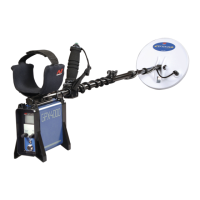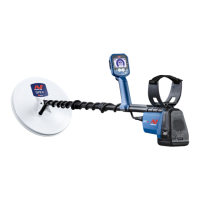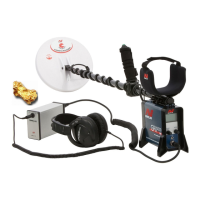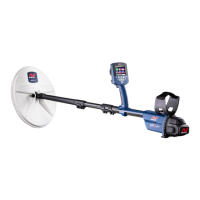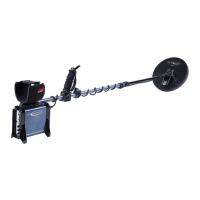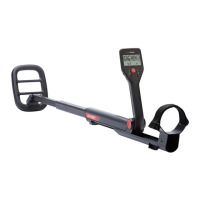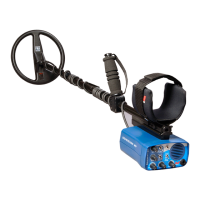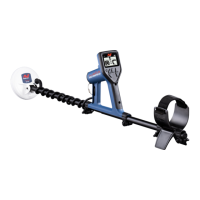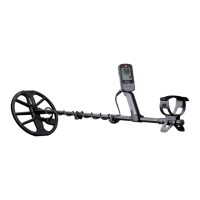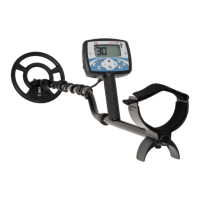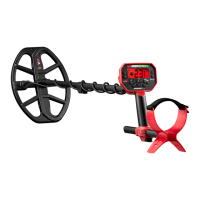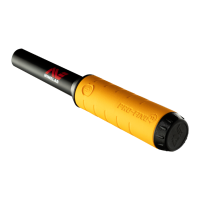9
CONTENTS
Ground Balance
Ground Balancing enables the detector to separate unwanted ground signals
from target signals. The GPX 6000 features Automatic Ground Balance, as well as
Quick-Trak and Ground Type settings for even greater Ground Balance control.
Quick-Trak
GPX 6000 tracks automatically to changing ground conditions during normal use. It is effective for typical detecting in
less variable ground. Automatic tracking adapts more slowly to ground conditions than Quick-Trak, so if detecting in highly
variable soils, ground balance can be initiated manually to quickly reduce noisy ground signals.
Performing Quick-Trak
1. Press and hold
Quick-Track button
Press and hold the Quick-Trak button — it must be
pressed throughout the Quick-Trak procedure.
2. Raise and lower coil
Gently raise and lower the coil between 10 and 150 mm
(⁄ and 6 inches) above the ground to expose the coil
to the full range of the ground — try to lower the coil
as close to the ground as possible without hitting the
ground.
3. Swing coil from side-to-side
Swing the coil from side-to-side once the ground noise
has significantly reduced. This will capture any remaining
ground signals for a thorough ground balance.
4. Release Quick-Trak button
Once the ground noise is at a comfortable level or will not
reduce any further, release the Quick-Trak button.
`IS there something to suggest if quick-trak doesnt work as expected, or just ‘Continue detecting’
Auto and Quick-Trak guide
Auto Quick-Trak
`Ideal for new users.
`Tracks successfully to ground that does not have
varying levels of mineralisation.
`Can track to a target rather than the surrounding
ground if the coil is repeatedly passed over it —
a target signal may be missed.
`Continuously occurs during detecting.
`A manually initiated Ground Balance process for faster
ground balancing than Auto.
`Use to ground balance to a chosen area of ground,
such as patches of extreme mineralisation, hot rocks
etc.
`Use in between digging and checking for a target, so
as the target is not ‘balanced out’ accidentally.
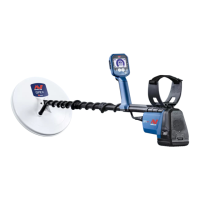
